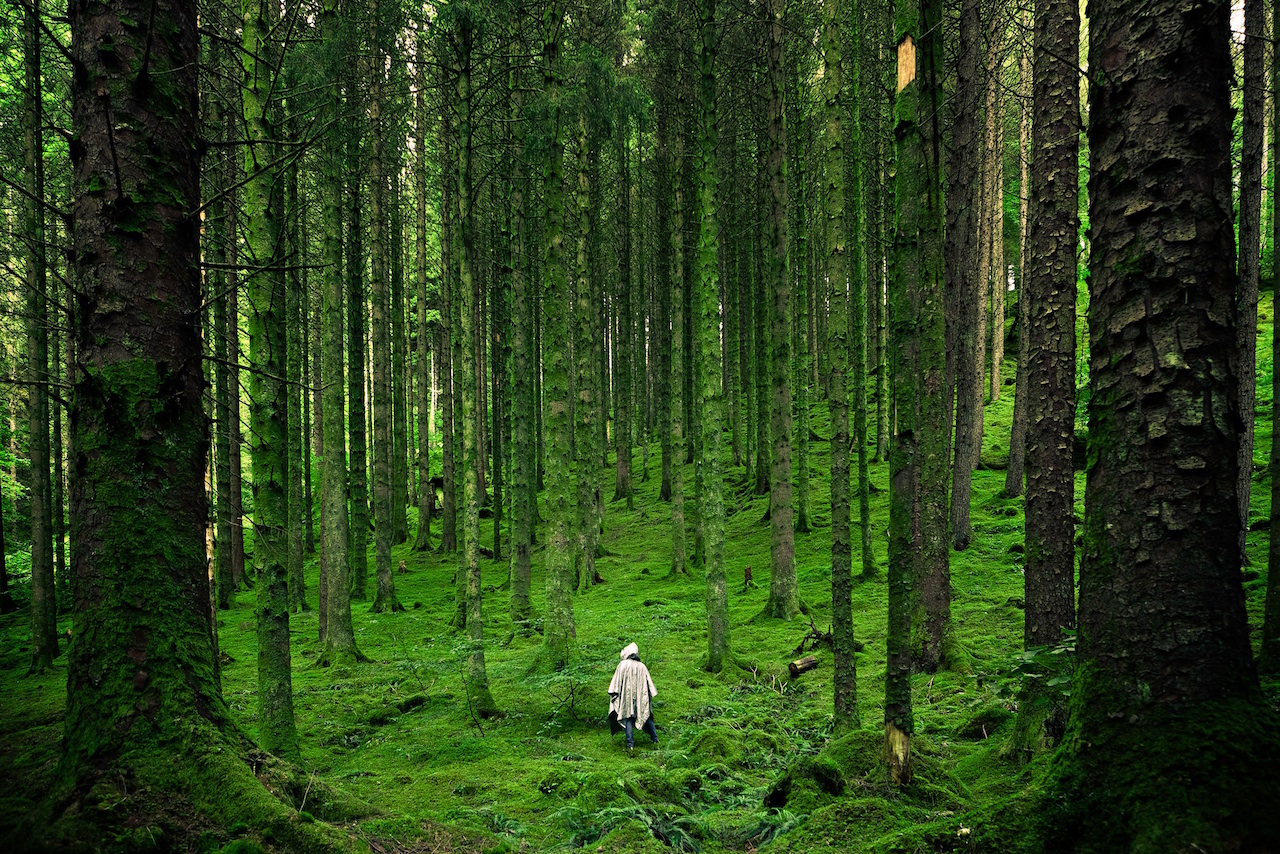“A Mad Gardener’s Half Dozen”
I was first introduced to Lewis Carroll’s “Mad Gardener’s Song” in a class taught by Rick Kenney in the fall of 1998. (Most good things in my life have arrived via Rick.) I wrote a few riffs on the original (“He thought he saw a Leprechaun / Arranging cups for tea: / He looked again, and found it was / The Spanish Cavalry”) and then mostly forgot about it for a decade. Then, in Brooklyn, in late 2008 and early 2009, I found myself returning to the form—and returning and returning and returning. If you fold a standard sheet of paper twice, you wind up with four rectangles on each side: perfect for writing eight Gardener’s stanzas. So that’s what I did, in subway cars and coffee shops—and soon I had around fifty that I liked, from which the selection here was chosen. I read some of them at a birthday celebration for Lewis Carroll at the Hugo House in late January of 2009, and I read even more of them at the Seattle Central Library that same week. I remember Jason Whitmarsh wondering how many stanzas I might be able to read aloud before the audience rose en masse and tried to kill me. We decided the answer was probably around fifteen.
Now it’s seven years later, and I’m writing a new Gardener’s stanza nearly every day. I’ve been tackling Trump and Clinton, guns and poverty—looking twice at the world, as the form demands. The last of Carroll’s nine stanzas ends with the extinguishment of hope. But the form itself gives me hope (or, as Carroll punctuates it, “hope!”), with its addictive music, its endless capacity for surprise.

A Mad Gardener’s Half Dozen
He thought he saw a Hula-Hoop
As big as twenty suns:
He looked again, and found it was
An octopus, with guns.
“I mean no harm, my well-armed friend,”
He said—that Prince of Puns.
He thought he saw a Telescope
That held the Evening Sky:
He looked again, and found it was
A Dear John Letter (sigh).
“My name is Jim; it’s not for me!”
He said—a Valiant Try.
He thought he saw a Garbage Truck
Upended in a ditch:
He looked again, and found it was
A naked, taunting Witch.
“My manhood she’s misprized,” he said;
“It lifts without a hitch!”
He thought he saw a Cup of Milk
All Curdled in the Heat:
He looked again, and found it was
A Bluesman’s Outsized Feet.
“I like to kick it some myself,”
He said—just off the beat.
He thought he saw a Prison Guard
Who wore Chantilly Lace:
He looked again, and found it was
A Booty Call, from Grace.
“I’m tied up till the 3rd,” he said,
“But text me, just in case.”
He thought he saw a Poltergeist
That cut a movie queue:
He looked again, and found it was
The End of Me and You.
“Perhaps you’ll meet again,” he said,
“In jail, or Kathmandu.”
He thought he saw a Suicide
Beneath the Shaded Elm:
He looked again, and found it was
A Captain at his Helm.
“The whitecaps on the rocks,” he said—
“They tend to overwhelm.”
—
Cody Walker‘s second poetry collection, The Self-Styled No-Child, is out now from Waywiser. He is the author of Shuffle and Breakdown (Waywiser, 2008) and the coeditor of Alive at the Center: Contemporary Poems from the Pacific Northwest (Ooligan, 2013). His poems have appeared in The Yale Review, Parnassus, Slate, and Salon; his essays have appeared online in The New Yorker and The Kenyon Review. He lives with his family in Ann Arbor and teaches at the University of Michigan.
Find more from Cody in the Winter & Spring 2016 issue of Poetry Northwest.
